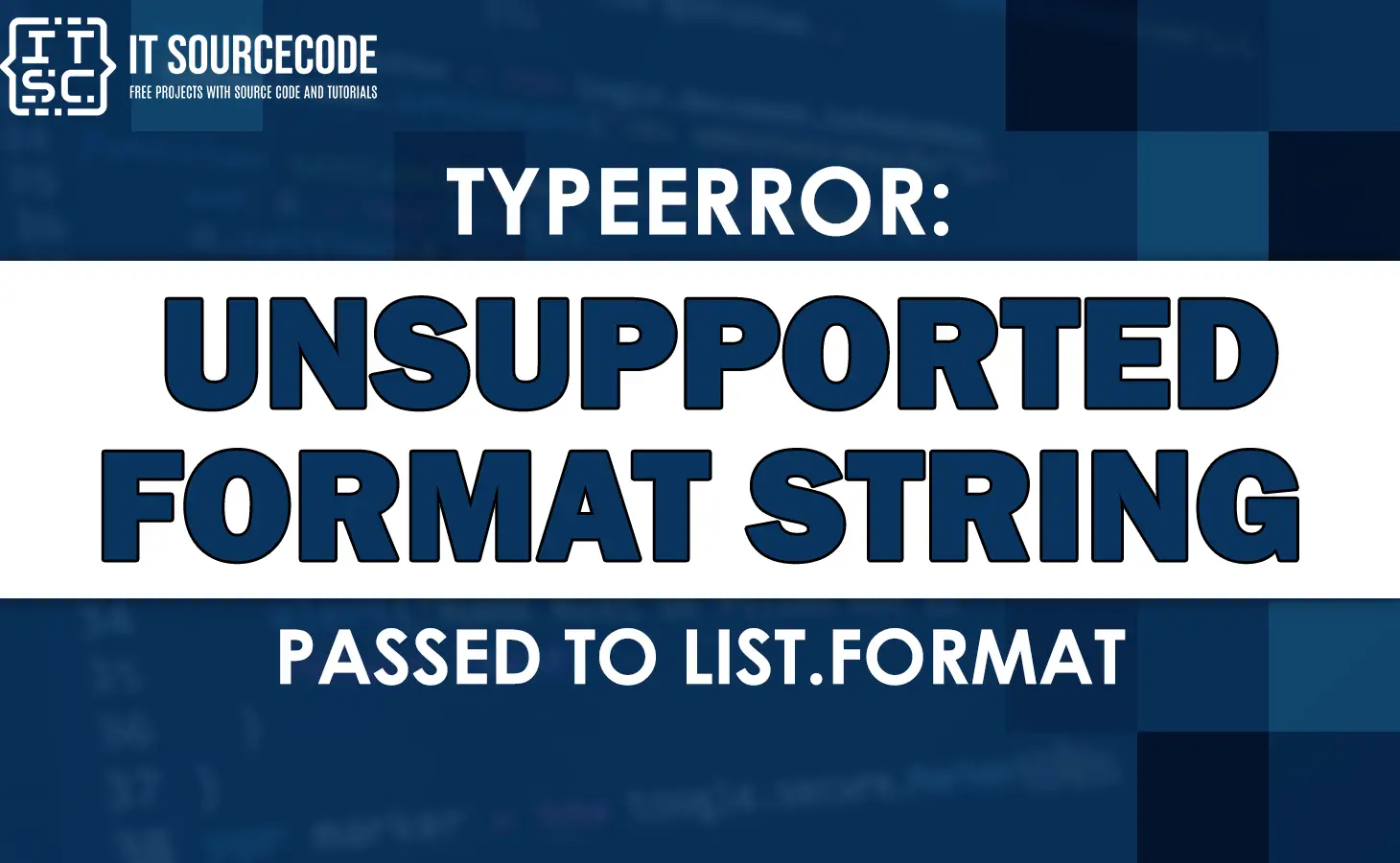In programming, it’s common to encounter the TypeError: Unsupported format string passed to list.format error.
Additionally, this error message can be confusing and may take some time to understand
Therefore, in this article, we’ll take a closer look at the causes of this error and how to fix it.
What is Typeerror: unsupported format string passed to list.format?
TypeError: unsupported format string passed to list.format
This error TypeError: unsupported format string passed to list.format usually occurs when you try to format a string using the format() method on a list object.
Furthermore, this error is telling us that we are trying to format a string using a list object. However, the format() method doesn’t support this type of object.
Causes of the Error
Now that we understand what the error message means, let’s take a look at some common causes of this error:
1. Using the format() method on a list object
One common cause of this error is when you try to use the format() method on a list object. The format() method is designed to work with string objects and not list-objects. If you try to use the format() method on a list object, you’ll encounter the said error.
2. Using a list object as an argument in a formatted string
Another common cause of this error is when you try to use a list object as an argument in a formatted string.
For example:
my_list = [1, 2, 3]
print(f"The list is: {my_list:04d}")This code will result in the TypeError: Unsupported format string passed to list.format error.
How to fix Typeerror: unsupported format string passed to list.format
Now that we understand this error, let’s take a look at how to fix it.
1. Convert the List to a String
One way to fix this error is to convert the list object to a string before using it in a formatted string. You can do this using the join() method.
Here’s an example:
my_list = [1, 2, 3]
my_string = ", ".join(str(x) for x in my_list)
print("My list contains: {}".format(my_string))In this example, we’re using the join() method to convert the list object to a string with each element separated by a comma and a space. Then, we’re using the formatted string to display the string.
Output:
My list contains: 1, 2, 3
2. Use a Different Data Type
Another way to fix this error is to use a different data type that is supported by the format() method. For example, you can use a tuple object instead of a list object. Here’s an example:
my_tuple = (1, 2, 3)
print("My tuple contains: {}".format(my_tuple))In this example, we’re using a tuple object instead of a list object. The format() method supports tuple objects, so we can use it without encountering the TypeError: Unsupported format string passed to list.format error.
Output:
My tuple contains: (1, 2, 3)
3. Use a different formatting method
Yet another way to fix the error is to use a different formatting method that is compatible with lists. For example, you can use the join() method to join the elements of the list into a string, and then format the string using a valid string format string.
my_list = [1, 2, 3]
my_list_str = ', '.join(str(x) for x in my_list)
print(f"The list is: {my_list_str}")This will join the elements of the list into a string separated by commas, and then format the string using a valid string format string.
Output:
The list is: 1, 2, 3
Conclusion
The TypeError: Unsupported format string passed to list.format error can be confusing, but it’s easy to fix once you understand the causes of the error. The two most common causes of this error are using the format() method on a list object and using a list object as an argument in a formatted string.
To fix this error, you can convert the list object to a string or use a different data type that is supported by.
We hope that this article has helped you resolve this error and that you can now continue working on your Python projects without any issues.
Anyhow, if you are finding solutions to some errors you might encounter we also have TypeError can’t concat str to bytes.

